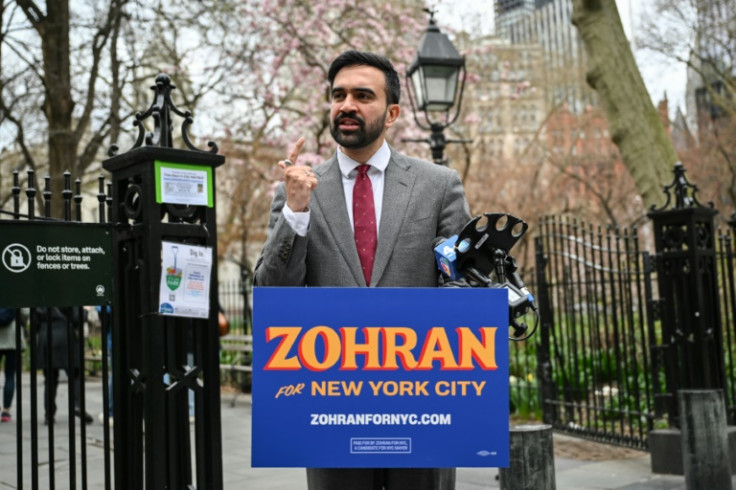Elon Musk, 50 Cent and Amy Schumer Join Backlash Against Zohran Mamdani's Historic New York Win
From the Israeli government to American celebrities, backlash to the new mayor spans politics, media and culture.

Zohran Mamdani's historic victory in the New York City mayoral race, making him the first Ugandan-Indian Muslim to hold the post, has drawn admiration from progressives worldwide. But it has also triggered an eclectic backlash from across the political and cultural spectrum, with critics ranging from far-right commentators to Hollywood celebrities and the Israeli government itself.
Below is a rundown of the most vocal, and often controversial, figures publicly distancing themselves from New York since Mamdani's win.
1. The Israeli Government
Perhaps the strongest institutional reaction came from Israel's government, which warned Jewish residents to 'reconsider living in New York' after Mamdani's victory. Israeli Diaspora Affairs Minister Amichai Chikli claimed the result represented 'a dangerous turn against Jewish safety,' urging Jews to emigrate to Israel instead.
The comments were met with outrage from US Jewish groups, who described them as fear-mongering and politically opportunistic, highlighting how Israel's right-wing coalition has sought to frame Mamdani's criticism of Israeli policy as hostility toward Jewish people more broadly.
2. George Santos
Disgraced former congressman George Santos, expelled from Congress amid multiple criminal charges, resurfaced online to condemn the election. On X, he stated in a video that he would be leaving NYC due to Mamdanis' win.
Santos' attempt to re-enter the political discourse has drawn mixed reactions with some seeing it as opportunistic grandstanding. In contrast, others view it as part of a broader right-wing effort to rally against what they perceive as New York's leftward shift.
Fuck you @CurtisSliwa I HATE YOU, your dumb wife, that stupid Beret of yours and all your fucking cats!
— George Santos (@MrSantosNY) November 5, 2025
3. 50 Cent
Rapper and entrepreneur 50 Cent, who moved out of New York several years ago citing high taxes, posted a cryptic Instagram Story after Mamdani's win: 'Good luck NYC. I told you.'
Although not an explicit political statement, his remark echoed earlier frustrations about progressive governance in the city — a theme often amplified by conservative commentators critical of crime and business regulation under previous Democratic leadership.
4. Amy Schumer
Comedian and actress Amy Schumer, a self-described liberal Zionist, posted a photo of her 'Voted by Mail' sticker on Instagram, writing cryptically that her vote 'rhymes with duomo' — an apparent nod to Andrew Cuomo.
The post was widely interpreted as a rejection of Mamdani, whose stance on Israel–Palestine has divided New York's liberal Jewish community. Schumer, who has previously spoken at pro-Israel rallies, has faced criticism for conflating anti-Zionism with antisemitism.
5. Woody Allen
Director Woody Allen said in an interview that he would 'vote for Cuomo because he'll be better for New York.'
Allen, still shadowed by longstanding abuse allegations, has seldom engaged publicly in politics. His endorsement underscores how Mamdani's win has unsettled parts of New York's older, wealthier liberal establishment that once dominated city politics.
6. Elon Musk
X owner Elon Musk amplified criticism of Mamdani by reposting several right-wing commentators describing the mayor as 'Hamas-friendly.' Musk has previously clashed with progressive officials in the US and UK over regulation and speech.
His intervention highlights how platform owners themselves can shape political discourse: Musk's algorithm has been shown to promote right-wing content, meaning criticism of Mamdani may have been algorithmically amplified to millions of users.
The Bigger Picture
The backlash to Mamdani's win reveals more about his opponents than about the mayor himself. The coalition of critics spans ideological extremes — from conservative influencers to centrist Hollywood figures — united less by policy disagreement and more by anxiety over the city's political shift.
For New York, the question is whether this cultural boycott represents genuine economic retreat or symbolic protest. For Mamdani, it may prove to be the defining early test of leadership: whether a proudly left-wing mayor can retain global relevance in a city long defined by its critics as much as its champions.
© Copyright IBTimes 2025. All rights reserved.





















